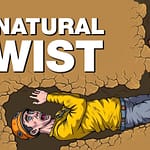When Disaster Strikes: How to Stay Safe and Survive in a Devastated City
When disaster strikes, whether it be a natural disaster like a hurricane or earthquake, or a man-made disaster such as a terrorist attack or industrial accident, it is crucial to know how to stay safe and survive in a devastated city. In the chaos and confusion that follows a disaster, it can be easy to panic and make mistakes that could put your life at risk. By following a few simple tips and strategies, you can increase your chances of survival and stay safe in a dangerous situation.
First and foremost, it is important to stay calm and think clearly. Panic can cloud judgment and lead to dangerous decisions. Take a deep breath and assess your surroundings before taking any action. Look for a safe place to shelter, such as a sturdy building or underground structure, and avoid areas that are at risk of further damage, such as near damaged buildings or downed power lines.
If you are caught outside during a disaster, seek shelter in a safe location as quickly as possible. Look for sturdy structures like buildings or overpasses that can provide protection from falling debris or collapsing buildings. Avoid standing near windows, which can shatter and cause injury, and stay away from tall buildings or structures that could collapse.
If you are in a vehicle when disaster strikes, pull over to a safe location and stay inside until the danger has passed. Avoid driving through flooded areas or debris-covered roads, as these can be dangerous and impassable. If you must abandon your vehicle, do so safely and quickly, taking care to avoid downed power lines or other hazards.
In the aftermath of a disaster, it is important to stay informed and follow the instructions of emergency responders. Listen to the radio or check social media for updates on the situation and follow any evacuation orders or instructions from authorities. Stay in touch with family and friends to let them know you are safe and to coordinate a meeting place if necessary.
It is also important to be prepared for the aftermath of a disaster, including potential shortages of food, water, and medical supplies. Keep a supply of non-perishable food, water, and first aid supplies on hand, as well as a flashlight, batteries, and a portable radio. Have a plan in place for how to contact loved ones and where to meet in case of separation.
Overall, the key to staying safe and surviving in a devastated city is to stay calm, think clearly, and be prepared. By following these simple tips and strategies, you can increase your chances of survival and protect yourself and your loved ones in a dangerous situation. Remember to stay informed, stay safe, and stay strong in the face of disaster.



